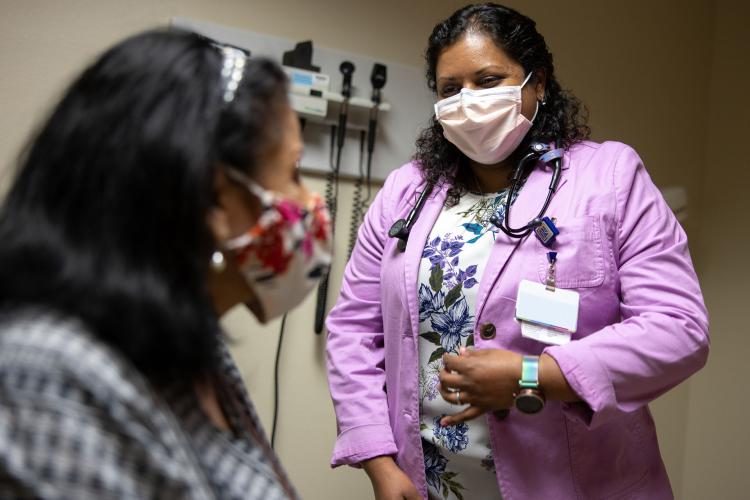
JPS is best in class for how well the Network serves its patients and communities
JPS Health Network has been named among the most socially responsible hospitals in the United States by the Lown Institute, and is among 15 hospitals that earned the designation while managing extraordinary challenges during the pandemic.
JPS is the only Tarrant County hospital, and one of only two Texas hospitals, to earn top marks for social responsibility, based on health equity, patient outcomes, and value of care.
The Lown Institute Hospitals Index measured social responsibility of 3,606 hospitals nationwide, evaluating facilities on 53 metrics. JPS is among the 66 hospitals that received “A” grades on each of three major categories in order to achieve the title of “most socially responsible” for 2022.
In addition, JPS was recognized as being among just 15 hospitals that earned straight “A” grades while also handling an extraordinary COVID-19 burden. The Lown Institute defined that as having 26 or more weeks with at least 10 percent of inpatient beds filled by COVID-19 patients during the first year of the pandemic.
“Achieving the trifecta of great outcomes, value, and equity is hard—especially under the pressures of a global pandemic,” said Vikas Saini, MD, president of the Lown Institute. “Hospitals that met the unprecedented challenges of COVID while staying committed to their social mission should be very, very proud.”
The Lown Institute Hospitals Index for Social Responsibility is a tool for evaluating hospitals as social intuitions.
- In the equity category, JPS earned an “A” for racial inclusivity of patients, ranking ninth in Texas. JPS also got an “A” for community benefit, which measures the extent of a facility’s investment in community health.
- In the value category, JPS earned an “A” for avoiding inappropriate tests and procedures.
- In the outcomes category, JPS received an “A” in clinical outcomes, which measures patient mortality and readmission rates.
In 2020, JPS Health Network was ranked No. 1 in the country by Washington Monthly Magazine and the Lown Institute, based on its contribution to the public good via patient outcomes, civic leadership, and value of care.
